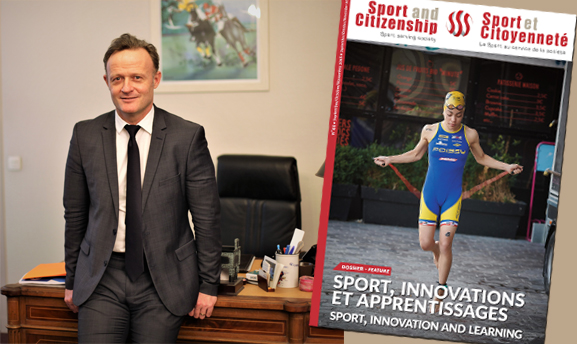School sport, an essential learning tool

Laurent Petrynka, ISF President
Sport is a resource for young people. Broadening the range of activities available, particularly in school sport, helps develop pupils’ social and educational skills, which will be valuable for their future careers.
At a time when the debate is focused on government funding for sport, in France as elsewhere, discussions should be mainly concerned with how sport is organised and how people participate in sport, with particular attention to what the public wants. The target sectors, in particular young people, want to do sport in various ways, and for different reasons. Sport, especially school sport, should constitute a resource for young people by contributing to their personal and professional development, since their experience today is very different from the experience of their elders.
The International School Sport Federation (ISF) has traditionally promoted education through sport through the international meetings it holds each year (10 to 12 world championships), and above all at its flagship event: the Gymnasiade. Every year in its summer or winter event the Gymnasiade brings together more than 3,000 athletes for an experience that goes beyond the competition: a cultural festival, an educational programme for all, and local and international volunteers. Young people’s experience of school sport should be complete, varied and fulfilling, as it tries to meet the expectations of some pupils and allow others to reach their potential.
With the wide range of activities on offer at its meetings, the ISF directly addresses the issue of developing young people’s skills in a world in movement. In 2017/2018 the Volunteering in School Sport (V2S) programme devoted to young volunteers was launched, with the support of the European Commission’s Erasmus+ Sport programme. Pupils from 6 countries (Croatia, France, Hungary, Latvia, Malta and Turkey) will benefit from an intensive training course and the chance to be volunteers at local and international events. With the help of a dedicated teaching team the group will develop important skills in different areas such as taking on new responsibilities, communicating, project management and languages.
This experience needs to be recognised and repeated, because it will bear fruit in their future studies and career. School sport, supported by the educational system already in place, offers a firm base for exploring the potential of sport for learning about oneself and being active citizens. The V2S project, like all the other ISF activities for young people throughout the world, attempts to help new generations to meet the challenges of their time. As for sport in schools, acquiring social and educational skills should always go hand in hand with doing sport.










 MEMBERSHIP
MEMBERSHIP CONTACT
CONTACT FACEBOOK
FACEBOOK